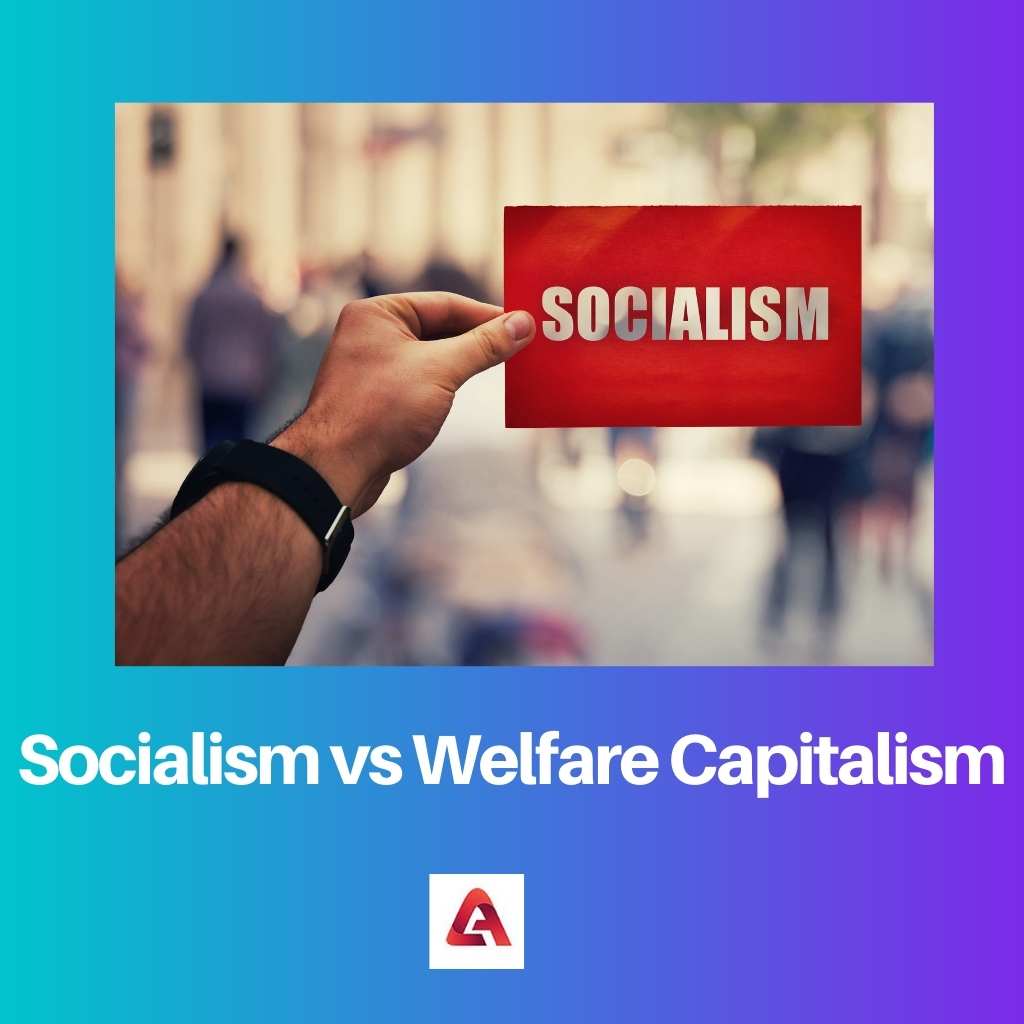A democratic nation isn’t born in a day. It takes centuries of struggle and decades of planning. While most countries follow a democratic government, the choice between the economy lands between socialism and welfare capitalism’s economical approach.
This decision is largely based on the resources available in the country, whether human or material.
Key Takeaways
- Socialism advocates for collective ownership of the means of production and wealth distribution, whereas welfare capitalism supports private ownership with government intervention to ensure social welfare.
- Welfare capitalism aims to reduce income inequality and provide a social safety net through programs like healthcare, education, and unemployment benefits.
- Socialism focuses on reducing class distinctions and promoting social and economic equality, while welfare capitalism seeks to balance private enterprise with social welfare programs.
Socialism vs Welfare Capitalism
Socialism advocates for collective ownership and control of production, while welfare capitalism advocates for a market economy with government interventions to provide social welfare programs. Socialism aims for economic equality, while welfare capitalism seeks to solve economic inequalities.

Socialism, as the name suggests, refers to a social, political, and economic philosophy that aims to create an economy established on social ownership rather than privatized ones.
These owners can be public, cooperative, or collective. A utopian form of economy, socialism has its own set of advantages and limitations and seldom functions full-fledged.
Welfare capitalism is a popular approach to economic systems. This is due to the blend of socialistic and capitalistic approaches that feature in the functioning of the welfare capitalistic economy.
This concept has the best of the two worlds, with sufficient privatization enabled along with the maintenance of social principles and policies.
Comparison Table
| Parameters of Comparison | Socialism | Welfare Capitalism |
|---|---|---|
| Definition | An economic system that follows a social approach to the working of institutions. | An economic system that follows a capital approach combined with social principles. |
| Elements | Social ownership, planned economy, restrictions on changes. | Private property, entrepreneurship, free markets. |
| Poverty | Tackles with relative poverty. Relative poverty is a more focused concept. | Focused on curbing absolute poverty. In comparison, absolute poverty is abject. |
| Price Determination | The government fixes the prices. | The prices fluctuate owing to the market forces. |
| Motto | Equality and fairness are aimed to be achieved here. | Individual goals and innovation are the driving factors in this economy. |
What is Socialism?
Socialism is an economic system concept that is considered to be the perfect or ideal system of functioning. This system follows the concept wherein the society’s inhabitants have equal ownership of the factors required for production.
These factors include natural resources, labor, capital goods, and entrepreneurship being shared amongst everyone. The public or state ownership of all resources is done by running a democratically elected government.
A pure socialist economic system proclaims that every citizen in the country undertakes their work with an objective to share the wealth equally amongst all. The system utilizes the phrase, “What is good for one should be good for everyone.”
However, this concept faces heavy criticism and is considered unachievable due to its one size fits all concept. The people in the society are allowed the right to choose the consumption and use of the resources.
The government makes all the production and consequent distribution activities and decisions, such as price determination. The government plays a flawless role and is responsible for providing goods and services that satisfy the needs of the people.
Socialism focuses on eradicating relative property. It is a direct contrast concept to that of the capitalistic economy.

What is Welfare Capitalism?
Unlike capitalism, which is purely based on profit-motive and privatization of resources and production, welfare capitalism inculcates certain social principles into itself.
Welfare capitalism is an amalgamation of a capitalistic economy along with a socialistic economy. A combination that is popularly pursued by several countries, welfare capitalism consists of the pros of both the above-mentioned economic systems.
However, welfare capitalism could also refer to the private businesses working to provide services that cater to the welfare of the employees and citizens.
This is known as industrial paternalism, where the needs of the employees are satisfied by the employers. This concept gained popularity in the middle of the twentieth century.
A welfare state is a term awarded to a form of governing in which the government plays a major role in protecting and promoting citizens’ economic and social well-being.
This system focuses on clearing absolute poverty rather than relative poverty. Developing or developed countries mostly practice welfare capitalism that helps in the growth of the private sector while protecting the interests of the country’s inhabitants.
Proper following of welfare capitalism could lead to favorable results. Despite the positives that could be reaped from practicing welfare capitalism, the concept is widely misused.
Main Differences Between Socialism and Welfare Capitalism
- While socialism believes in diving the profits earned equally from the public or socially owned companies, welfare capitalism follows the privatization of businesses.
- People in a socialistic economy follow the prices and rules determined by the government. Changing market forces define the prices in welfare capitalism.
- Socialism and welfare capitalism works towards reducing and ultimately absolving poverty. However, the former works towards resolving relative poverty and the latter towards absolute poverty.
- The key factors in socialism are the social ownership of resources, the planned economy, and the restrictions on changes. On the other hand, welfare capitalism has individually owned property, free entry, and exit to markets.
- While socialism is considered to be a direct contrast to capitalism, welfare capitalism retains certain elements of it.
- https://journals.sagepub.com/doi/pdf/10.1177/0032329294022004003
- https://academic.oup.com/ser/article-abstract/1/1/27/1617695
